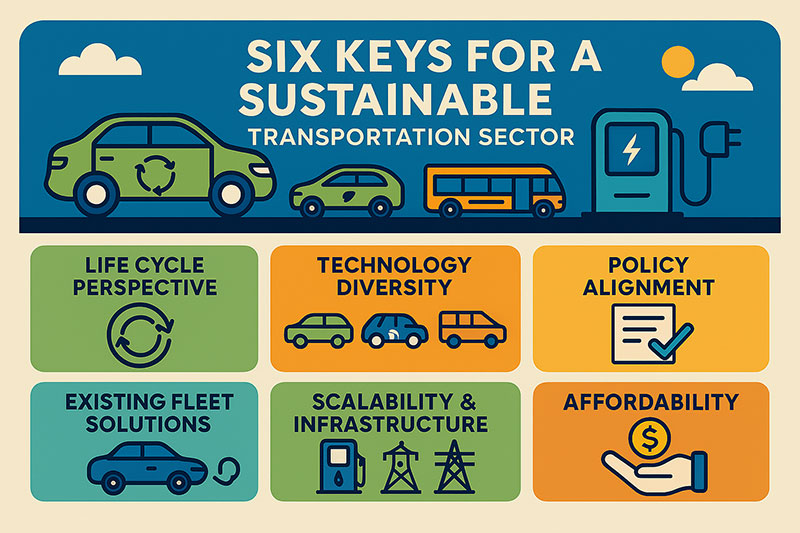October 28, 2020
“Impact of Transportation-Related Environmental Initiatives” takes an in-depth look at the relative effectiveness and associated costs to society, government, industry and consumers of 14 distinct transportation movements, including those focused on emissions, fuel economy, and carbon pricing; alternative fuels; congestion pricing, tolls, and telecommuting; and mobility.
“As the world continues to focus on the transportation-energy sector to positively impact the environment, we commissioned this report to provide a resource to help policymakers and stakeholders better understand the menu of options available to them,” said Transportation Energy Institute Executive Director John Eichberger. “We began by summarizing 37 different initiatives under consideration around the world, and then focused on 14 to conduct robust evaluations to understand their effectiveness in reducing emissions and their overall cost to society and consumers.”
The report compares all 14 movements in the areas of effectiveness, impact, and cost over the next 20 years (2020-2040). Effectiveness is a weighted average measure of emissions, fuel economy, and vehicle demand in terms of shift to alternative powertrains; impact is defined by whether the movement is nationwide, prevalent in some states, or limited to only a few regions or cities; cost includes those incurred by industry participants and/or consumers to comply with a movement.
Consumer Energy Alliance President David Holt said the report provides critical analysis to better understand emissions reduction efforts by introducing agnostic facts and analysis into a debate in which policymakers must make the right choices from among dozens of policy proposals and untested initiatives.
“This important Transportation Energy Institute study gives us the kind of hard data that must be part of the formula for energy policy that balances our environmental goals and economic needs, while preserving consumer choice,” Holt said. “America can and should build on its world-leading emissions reductions, and information like this arms us with the tools to make smart decisions so our families, farmers and small businesses do not bear an unnecessary burden for their transportation-related energy costs. It’s all about balance.”
“With the menu of initiatives available, it is important for stakeholders to be able to balance their options with respect to meeting transportation-related emissions goals with the associated costs to consumers and society,” Eichberger continued. “This report serves as a tool for policymakers to use when weighing the costs and benefits of specific initiatives to facilitate the development of effective programs.”
The report found that policies promoting vehicle electrification seem to yield significant emissions reductions but carry with them similarly significant costs. Those policies addressing biofuels yield moderate emissions reductions coupled with moderate costs. Meanwhile some policies like telecommuting yield modest emissions benefits with minimal associated costs.
“What becomes clear when evaluating the various options available is that there is no silver bullet – every initiative comes with offsetting compromises,” Eichberger explained. “This report can help interested parties evaluate the options available to determine which combination of programs could yield the greatest emissions reduction for the lowest possible cost – and that is something that could be considered sustainable, from the perspective of both the environment and the economy.”
This report provides valuable context into the relevant emissions-reducing movements gaining traction in the U.S. and serves as an objective way to measure their costs and benefits as compared to one another. The “Impact of Transportation-Related Environmental Initiatives” report is available at www.fuelsinstitute.org/research. Additionally, you can find an overview of the full 37 movements considered for this report to guide consideration of the various options available for addressing transportation-related emissions.




